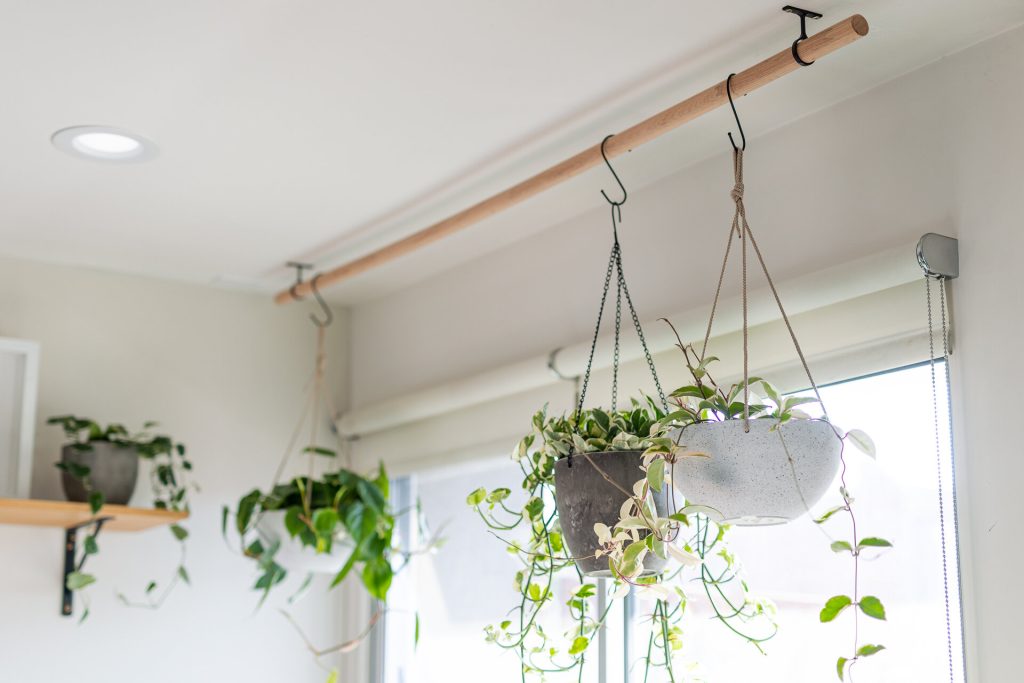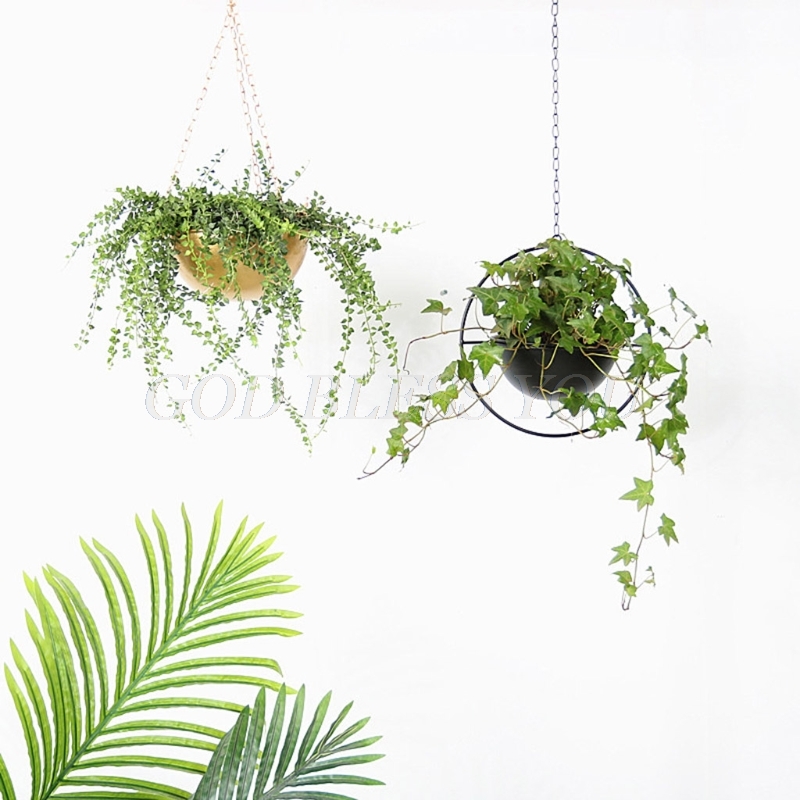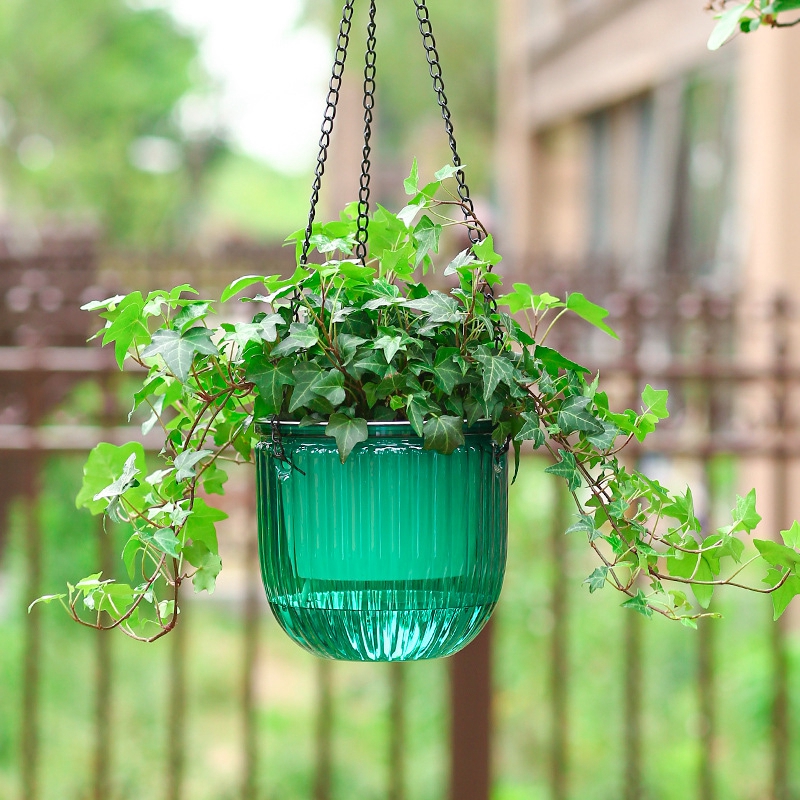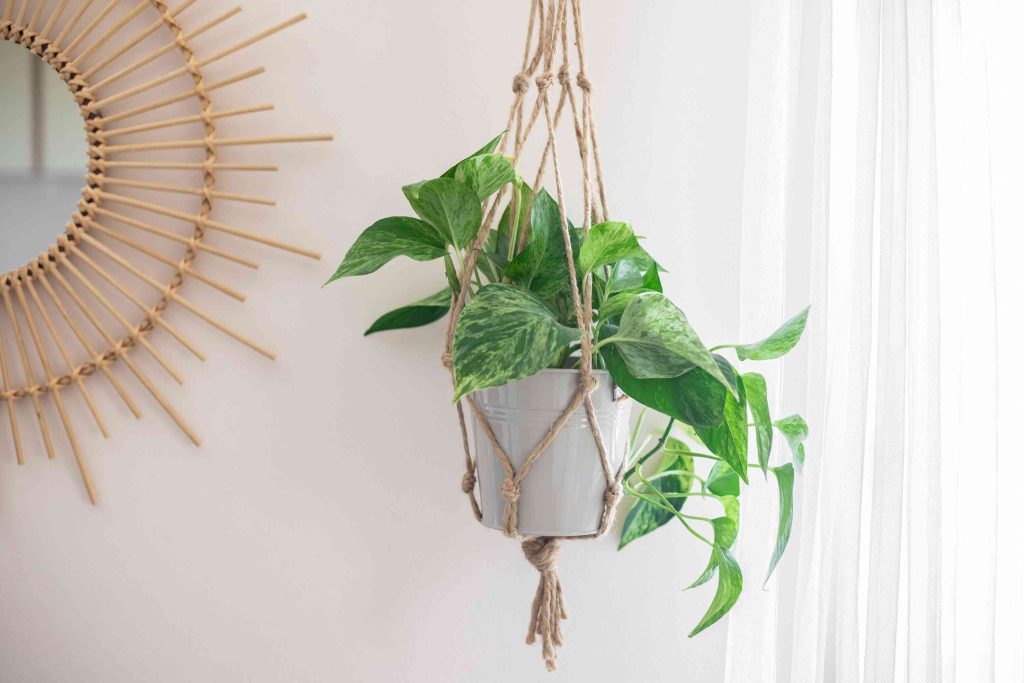There’s a unique joy in cultivating your own herbs, bringing the flavors and aromas of a garden right into your home. Traditional herb gardens often require ample outdoor space, but what if you could cultivate herbs indoors, even in the tightest of living quarters? This is where hanging plant pots come into play. In this guide, we’ll explore the world of indoor herb gardening through the creative lens of hanging plant pots, allowing you to experience the magic of fresh herbs right at your fingertips.

Why Choose Hanging Plant Pots for Herb Gardening?
Hanging plant pots present an innovative solution for those who want to grow herbs indoors without compromising on space. Here’s why they’re a creative and practical choice:
1. Space Optimization: Hanging plant pots utilize vertical space, which is often underutilized in indoor environments. Whether you have a small apartment, limited countertop space, or a desire to keep your herbs away from curious pets, hanging pots allow you to grow your herbs without taking up valuable floor space.
2. Sunlight Accessibility: Placing hanging pots near windows or under natural light sources ensures that your herbs receive the sunlight they need for healthy growth. Herbs like basil, thyme, and rosemary thrive with direct sunlight, and hanging pots can be positioned for optimal light exposure.
3. Visual Appeal: Hanging herbs create a visually appealing display that adds a touch of nature to your indoor decor. The lush greenery cascading from above adds a sense of freshness and vitality to your living space.
4. Pest Management: Elevating your herb garden can help deter pests from reaching your plants. This can be particularly beneficial for herbs that are susceptible to common indoor pests.

Getting Started: Setting Up Your Hanging Herb Garden
1. Choosing the Right Herbs: Select herbs that are well-suited for indoor growth and fit within the dimensions of your hanging pots. Popular choices include basil, mint, chives, parsley, and oregano.
2. Selecting Hanging Pots: Choose hanging pots with appropriate drainage to prevent overwatering. Consider the weight of the pots when filled with soil and water, and ensure that your chosen hanging mechanism can support them.
3. Soil and Planting: Use a well-draining potting mix suitable for herbs. Plant your herbs in the hanging pots, leaving enough space for growth. Remember to provide proper spacing between herbs to prevent overcrowding.
4. Placement and Light: Identify the best spots for hanging your pots. South-facing windows often provide the most sunlight, but east and west-facing windows can also work well. Rotate the pots occasionally to ensure even growth.

Caring for Your Hanging Herb Garden
1. Watering: Check the moisture level of the soil regularly. Herbs generally prefer slightly drier soil between waterings. Water the plants thoroughly when the top inch of soil feels dry to the touch.
2. Pruning and Harvesting: Regularly prune your herbs to encourage bushier growth and prevent them from becoming leggy. Harvest leaves as needed, pinching just above a leaf node for optimal regrowth.
3. Fertilization: Use a balanced liquid fertilizer every 4-6 weeks to provide essential nutrients. Follow the instructions on the fertilizer packaging for the best results.
4. Preventing Pests: Monitor your herbs for signs of pests. If you notice any infestations, take prompt action using natural pest control methods or insecticidal soap.

Hanging plant pots offer a creative and practical way to indulge in herb gardening indoors. Whether you’re a seasoned gardener or just starting your green journey, cultivating herbs in hanging pots can be a fulfilling and satisfying experience. From adding flavor to your culinary creations to enjoying the beauty of fresh herbs right in your home, the possibilities are endless. So, embrace the art of suspended gardening, elevate your indoor space, and savor the rewards of your own flourishing herb garden.
